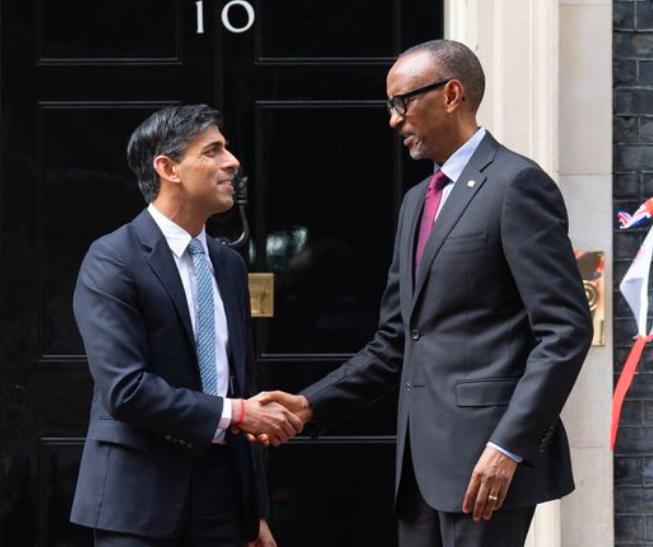In a revealing assessment by the Foreign, Commonwealth and Development Office (FCDO), concerns over the viability of Rwanda as a destination for UK asylum seekers have been brought to light. The report underscores the challenging conditions within Rwanda, indicating that more than half of its population, precisely 56.5%, subsists on less than $1.90 a day. This stark revelation comes amidst plans by the UK government to initiate a deportation scheme aimed at processing asylum claims within Rwanda.
The FCDO’s document lays bare the stagnation of poverty reduction efforts in Rwanda since 2014, despite the implementation of social protection programmes intended to mitigate poverty. However, the effectiveness of these programmes is questioned, with issues such as inconsistent quality of implementation, poor targeting, and weak case management reducing their impact on poverty alleviation. This has, in turn, resulted in heightened levels of malnutrition and diminished resilience among the populace.
Research commissioned by the FCDO attributes the slowdown in poverty reduction to several factors, including land scarcity, limited livelihood options, and climactic challenges like landslides. These conditions have forced families to reduce meal consumption, incur debts for food, and withdraw children from education, highlighting a dire need for sustainable livelihood solutions and effective poverty exit strategies.
The UK’s Home Office remains steadfast in its plan to deport some asylum seekers to Rwanda, a move criticized by experts and human rights advocates alike. Michela Wrong, an author critically examining Rwanda under President Paul Kagame, voices concerns over the selection of Rwanda for this scheme, citing its profound poverty and reliance on subsistence farming as major obstacles.
The backdrop of this deportation plan is a £64.5 million aid agreement between the UK and Rwanda, aimed at fostering economic growth in Rwanda through investments in education, agriculture, and healthcare. Yet, the legal and moral validity of the plan is under scrutiny, with the UK’s Supreme Court and human rights activists highlighting the risks associated with deporting asylum seekers to a country grappling with malnutrition and poverty.
Critics, including legal experts like Toufique Hossain of Duncan Lewis Solicitors, condemn the scheme as both “morally and legally bankrupt,” pointing out the inappropriateness of subjecting vulnerable individuals fleeing war and persecution to further hardship in Rwanda. The UK government, however, maintains that Rwanda is a “suitable and safe” destination, emphasizing the economic support provided to improve conditions for both migrants and local communities.
































































